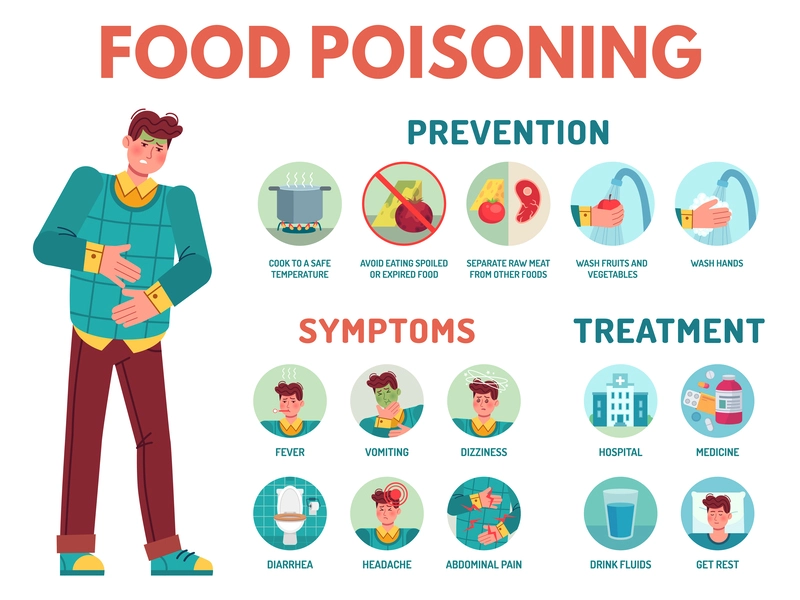Ahlian Jian Insights
Exploring the latest trends and news in various fields.
Bite Back Against Food Poisoning Misconceptions
Unmask food poisoning myths! Discover the truth to protect yourself and your loved ones from hidden dangers in your meals.
Debunking Common Myths: What You Really Need to Know About Food Poisoning
Food poisoning is often surrounded by various myths that can lead to misunderstandings about its causes and prevention. One common myth is that eating expired food automatically leads to food poisoning. In reality, many foods can still be safe to consume after their expiration dates if stored correctly. According to the FDA, food labels often indicate quality dates rather than safety, meaning that food may still be good even after those dates have passed.
Another prevalent myth suggests that only undercooked meat can cause food poisoning; however, contamination can also occur through various other sources, including fruits and vegetables. A study from the CDC highlights that fresh produce is responsible for a significant number of foodborne illnesses. To safeguard yourself, it is crucial to practice proper hygiene, such as washing your hands and thoroughly rinsing fruits and vegetables before consumption, thereby reducing the risk of food poisoning.

Top 5 Food Poisoning Misconceptions That Could Endanger Your Health
When it comes to food safety, misconceptions can lead to dangerous consequences. One common myth is that you can't get food poisoning from fresh produce. Many people think that only undercooked meats or expired products pose a risk. However, according to the CDC, fresh fruits and vegetables can harbor harmful bacteria like E. coli or Salmonella, particularly if they are not washed properly. It's essential to treat all food, including produce, with caution to reduce your risk of illness.
Another dangerous misconception is that freezing food kills bacteria, which is simply not true. While freezing can stop bacteria from growing, it doesn't kill them. As pointed out by the USDA, some bacteria can survive freezing, and once thawed, they can become active again. To ensure safety, it's crucial to cook food to the appropriate temperatures rather than relying on freezing as a foolproof method for eliminating pathogens.
Is Food Poisoning Just a Summer Concern? Understanding Risks Year-Round
Many people believe that food poisoning is primarily a concern during the hot summer months, when bacteria thrive in warmer temperatures and food tends to spoil more quickly. However, this misconception overlooks the fact that foodborne illnesses can occur year-round. According to the Centers for Disease Control and Prevention (CDC), millions of people are infected with foodborne pathogens each year, with many outbreaks occurring in the winter months. Factors such as improper food storage, cross-contamination, and undercooked meals can lead to risks regardless of the season.
To better understand the risks associated with food poisoning throughout the year, it’s essential to recognize various high-risk scenarios. For example, holiday gatherings often involve large amounts of food being prepared in advance, which can increase the potential for bacterial growth. Additionally, restaurants may not adhere to food safety standards consistently, leading to outbreaks during any month. It's crucial to remain vigilant in practicing safe food handling and cooking methods, regardless of the time of year. For more information on food safety practices, visit FoodSafety.gov.